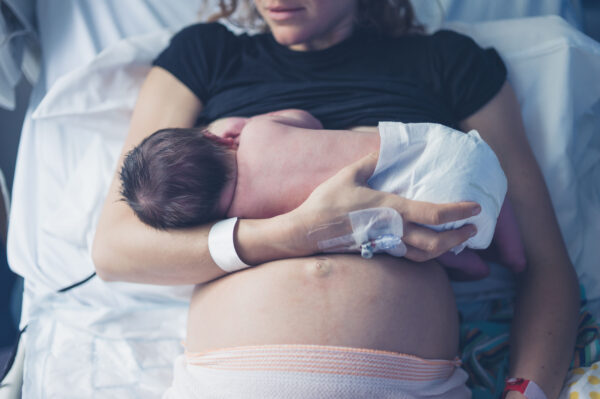
Newborns are incredibly fragile and vulnerable to medical conditions that can cause catastrophic complications. One of the deadliest such conditions is meningitis, a type of infection that affects the brain.
Doctors who care for expectant mothers and newborn babies need to take appropriate actions to minimize the risk of meningitis and to effectively treat this birth injury when it does occur. When they fail to do so, the consequences can change lives forever.
What is meningitis?
Meningitis is an infection of the membranes that line the brain and spinal cord, usually after bacteria or a virus travels from another part of the body. If not treated properly, meningitis can cause permanent brain damage and other serious complications.
How does meningitis occur in infants?
Meningitis in newborns is usually bacterial or viral, with bacterial meningitis being generally more dangerous. The most common cause of bacterial meningitis in newborns is group B strep (GBS), an infection in the mother’s body that can be passed to the baby during delivery. Other types of bacteria can also spread from the mother to the baby, either in the womb or during birth.
Viral meningitis can also be caused by common viruses such as the influenza or chickenpox virus. While viral meningitis is usually less severe than bacterial meningitis, it can still be incredibly dangerous for babies.
How is meningitis diagnosed in newborns?
The most common warning sign of meningitis, like any infection, is a fever. Other signs of illness include but are not limited to:
- Abnormal drowsiness
- Difficulty breathing
- Jaundice
- Vomiting
- Unusual fussiness or irritability
- Seizures
A diagnosis of meningitis usually has to be confirmed through a spinal tap or lumbar puncture, which takes a sample of spinal fluid. A doctor may also need to perform imaging tests such as an ultrasound, CT scan, or MRI.
The role of medical malpractice in meningitis cases
Preventing meningitis in newborns starts during prenatal care. Testing the mother for group B strep is standard practice between 36 and 37 weeks of pregnancy; if labor begins before 36 weeks, the test should be performed immediately. Doctors also need to test for other types of bacteria that can cause meningitis if medically indicated.
If the mother is positive for Group B strep, doctors should give antibiotics to kill the infection during labor and delivery, ideally at least four hours before childbirth. (Giving antibiotics sooner may not be effective because the infection could return before birth.) If labor progresses quickly and there isn’t time to give the antibiotics before the baby is born, then the baby must be closely monitored for signs of infection in the hospital for at least two days after birth.
Finally, if a baby does develop meningitis, medical providers need to move quickly to diagnose and treat the condition before it can cause permanent damage. The consequences of improperly treated meningitis can include permanent brain damage, cerebral palsy, epilepsy, blindness, deafness, and more.
Our law firm stands up for victims of preventable infant meningitis
Meningitis in newborns is preventable if doctors, nurses, and other medical professionals do their jobs. When they don’t, serious and life-altering injuries can occur. Our law firm has extensive experience holding negligent doctors accountable, including a $2.75 million recovery for a baby who suffered brain damage as a result of a delay in diagnosis of bacterial meningitis. If your child developed meningitis as a result of medical malpractice, give us a call or contact us online for a free consultation with The Lancione Law Firm.
